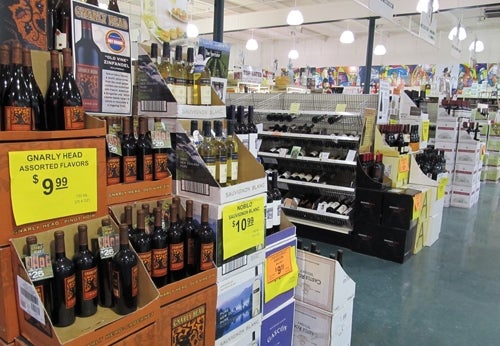A surge in home deliveries of alcoholic beverages, disproportionate job losses among women during the pandemic, and long-sought authorization for cashless lottery sales are all on Treasurer Deborah Goldberg’s mind as the Legislature kicks off its annual budget review.
The COVID-19 pandemic created months of uncertainty on the state’s financial outlook, but Goldberg told the Joint Ways and Means Committee that the fiscal picture “remains relatively robust” as Massachusetts approaches the one-year anniversary of its public health state of emergency.
One major pandemic-era shift has come in the distribution of alcohol sales. During a time when many in-person routines have shifted, the Alcohol Beverages Control Commission has seen direct-to-consumer alcohol deliveries increase 300 percent, Goldberg said.
That market includes Drizly, a company with Boston roots that ride-hailing and delivery service Uber purchased for $1.1 billion last month.
“Inspector investigators work tirelessly to vet direct shipment companies, prevent unlawful third-party deliveries, and collect excise taxes,” Goldberg said. “Without increased enforcement and oversight in this area, the ABCC estimates that millions of dollars in excise taxes would go uncollected.”
Jen Whitman, a spokesperson for Drizly, said Goldberg’s projections track with the company’s own figures. Drizly grew more than 350 percent in 2020 compared to a year prior, while the number of retail partners using the platform has doubled since Jan. 1, 2020, Whitman said.
Other delivery services such as DoorDash and GrubHub have taken on significant public attention during the pandemic. Many local restaurants face significant costs for using those platforms, but state lawmakers opted not to impose a cap on delivery fees while negotiating an economic development bill in January.
The ABCC remains on track to generate $5.1 million in direct revenue in fiscal year 2021, Goldberg said, the same amount as in fiscal 2021.
A license fee payment plan the ABCC implemented for impacted businesses seven months ago has been “successful” so far, Goldberg said, though she stressed that many local establishments will continue to face strain as the crisis continues.
About 13 percent of entities, including manufacturers and wholesalers, that hold licenses from the ABCC have not renewed for 2021, Goldberg said. For local restaurants and hotels, only about 3 to 5 percent of licensees have not renewed among the 90 percent of municipalities reporting, which Goldberg described as “a much lower number than we originally thought.”
“Local, state, and federal programs have helped to provide much needed relief for these licensees,” she said. “While encouraging, we will not be able to truly measure the impact of the pandemic on the industry until next year, when these relief programs have likely ended.”
Goldberg also touted the success of the Massachusetts Lottery, another agency under her purview. On Monday, the Lottery bumped up its projected fiscal year 2021 profits by $45 million, surpassing earlier expectations that it would take more of a hit during the pandemic.
The Massachusetts Lottery still can only pay with cash, despite years of advocacy from Goldberg and other officials to expand sales to cashless formats.
Gov. Charlie Baker’s $45.6 billion fiscal year 2022 budget, the subject of Tuesday’s Ways and Means Committee hearing, would authorize debit but not credit purchases of Lottery products. He included a similar proposal in his previous annual budget, but the Legislature did not adopt it.
Goldberg urged lawmakers to support a cashless payment expansion this time around, warning that the Lottery could fall behind without embracing new options.
“While we have regained ground, we remain vulnerable to disruption,” she said. “The pandemic has brought unprecedented changes in consumer behavior. More than half of Americans today use some form of contactless payment. More and more retailers have also made the shift to e-commerce. Now that consumers have experienced the ease and security provided by these types of transactions, for most, there is no going back.”
The treasurer also presented “mind-boggling” figures about the economic crisis and its disproportionate impact on women, reflecting the widely reported trend about disparate impacts across gender lines.
Across the U.S., women as a demographic group have lost 5.4 million jobs during the pandemic. In December, men as a group made gains in employment, leaving women representing virtually all of the net losses, Goldberg said.
“I can’t even say more about that,” she said. “It just stuns me.”

